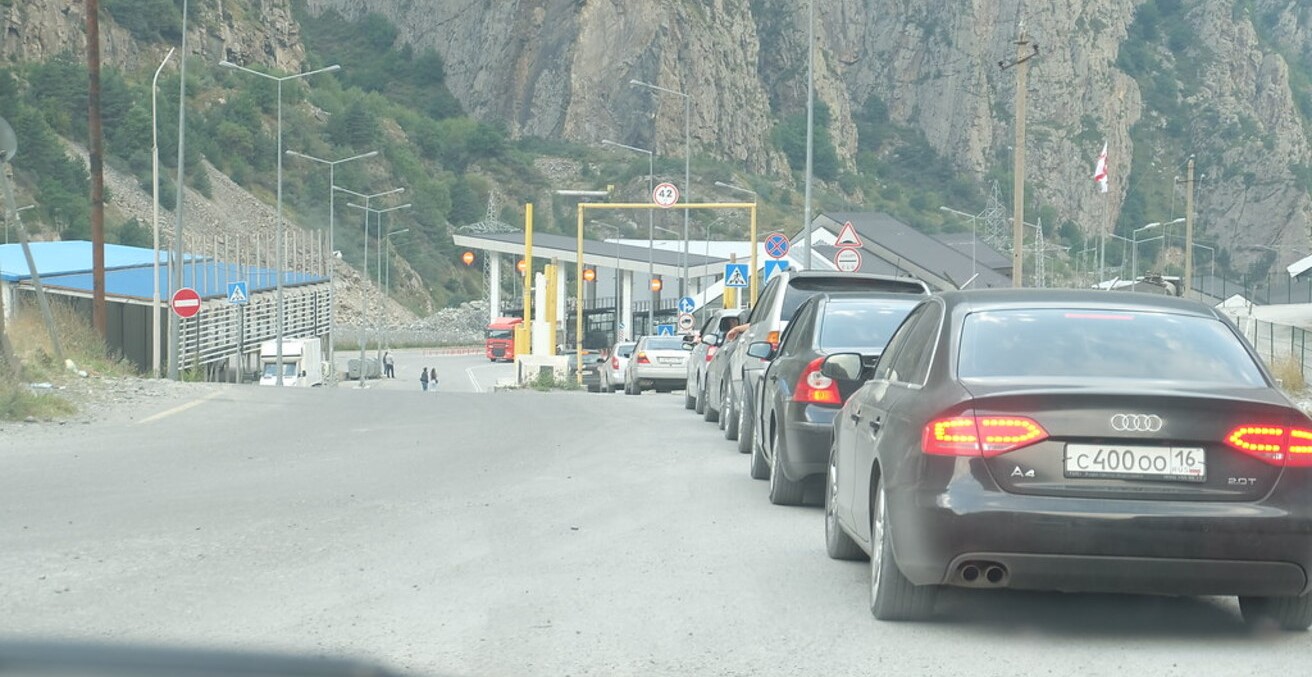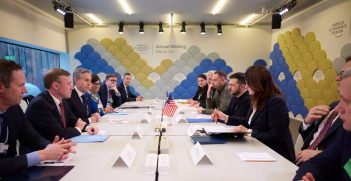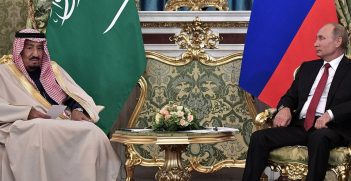Putin’s Emigration Dilemmas Since the Invasion of Ukraine

Russia has done surprisingly little to impede emigration following its full-scale invasion of Ukraine. While this is explained by reluctance to provoke domestic opposition to the war, military calculations might affect this rationale as the conflict drags on.
The Soviet Union maintained one of the world’s most restrictive policies on citizens’ departure abroad. Until the end of the USSR, leaving the country for any reason was a rare privilege. The Russian Federation abrogated this policy, and today’s Russian citizens see the relatively free foreign travel they have enjoyed since 1991 as a major gain of the post-Soviet period. Until now, even as President Vladimir Putin has curtailed other civil rights, he has been reluctant to break with this post-Soviet policy of liberalised foreign travel. Yet, his full-scale invasion of Ukraine in February 2022 has created new emigration dilemmas, with economic and political imperatives pushing the regime in opposite directions. For now, the Kremlin is trying to square the circle, limiting foreign travel for those most urgently needed for military service but not locking the exits completely. However, it is not clear how long this policy can last.
Putin’s onslaught on Ukraine led to Russia’s most rapid exodus since the crisis of the early 1990s, as Russian citizens fled possible conscription and other hazards. In the first year of the war, about 800,000 people — including many young men of military age, as well as IT specialists and other highly educated urban professionals — emigrated from Russia to various countries, with Kazakhstan, Georgia, Turkey, and Armenia the most popular destinations. To the surprise of some observers, Russia largely tolerated this outflow. Indeed, the government even used threats of prosecution to drive out of the country some noted opponents, such as the leftwing academic Boris Kagarlitsky. Even now, two years later, the only serious new legal restriction on exit is a travel ban for men who received a conscription notice after the partial mobilisation announced in September 2022. Even if entry to some Western countries has been made more difficult, Russian citizens continue to leave their own country largely unimpeded for permanent foreign residence, business, and holiday travel to the beaches of Turkey and the United Arab Emirates. What accounts for the decision not to restrict emigration, even at such a high cost in human resources?
In essence, the Russian regime needs to balance its need for soldiers and labour against the need to limit public opposition to the war. Today’s Russians, or at least the politically engaged urban middle class, live in an internationalised world of foreign holiday travel, globalised consumption, and social media. Restricting emigration would be a highly unpopular move, signalling the end of normal bourgeois life in Russia and a return to a Soviet-style police state. Allowing the discontented to leave — even those most useful, such as skilled workers or “cannon fodder” — has helped the government to limit active opposition to the war, with passive acquiescence the most common attitude. Thus, since 1996, the Russian polling firm Levada Centre has asked Russians, “Are things generally going in the right direction in the country today, or is the country heading down the wrong path?,” a neutral question that allows assessment of people’s positions on the war. Based on responses since February 2022, it can be estimated that, while only about 25 percent of respondents actively support the war, only 15 percent oppose it, and about 60 percent passively accept it.
The regime’s economic calculus vis-à-vis emigration is also mixed, although mostly negative. Maintaining the “open-door” emigration policy has produced a skilled labour force shortage, with the mass outflow of educated young professionals and students particularly hampering military production. Employers’ most frequent complaints concern IT specialists who have left the country in droves despite the government’s attempts to retain them with special social benefits and allowances. According to a Russian Central Bank study in August 2023, a year and a half after the full-scale invasion, 60 percent of non-financial firms were experiencing a labour shortage. In addition, the surplus of job vacancies over available workers increased substantially in the same period, from 14.3 percentage points to 23.8 in 2023. To be sure, free emigration is not the only factor contributing to Russia’s increasing labour shortage. The mass departure of foreign businesses, along with intensive government military procurements, have also contributed to this phenomenon. In this regard, it is worth noting that the regime’s continuing liberal emigration policy helps Russian businesses evade Western economic sanctions through informal transborder trade.
Overall, even if the exodus of young people and skilled workers is damaging Russia’s long-term economic prospects, so far, the regime has benefited from maintaining Russia’s “open-door” emigration policy. Yet today, that policy faces increasing backlash in Russia. With the war dragging on, and casualties and other hardships mounting, many citizens feel negatively about those who have left the country since the 2022 mobilisation. Fifty-one percent of respondents to a February 2023 survey by the Levada Centre expressed hostility to such emigres, with only 10 percent taking a positive view of them. Despite the repressive nature of Putin’s regime, he does not entirely control discourse inside Russia, and the government is reluctant to crack down hard on citizens who basically support the war, even if they disagree with specific policies. Proposals have already been made in Russia’s parliament concerning the closure of the borders, confiscation of the property of people who left the country after the mobilisation, and other repressive measures against those who have voted against the war with their feet. Possibly as a result, there are signs that the Russian authorities have started to explore options for limiting citizens’ foreign travel and emigration. This affects different groups of people. For example, Putin recently decided to complicate the procedure for allowing certain categories of high-ranked officials with access to state secrets to travel abroad. Russia may even be seeking to influence the entry policies of foreign countries to make it difficult for Russians to move to them. An example is Finland, where an attempted mass inflow of undocumented migrants, staged by Russian intelligence at the two countries’ border in late 2023, led Finland to close those ports of entry entirely.
The future direction of Russia’s emigration policy is unclear. If, as seems likely, the regime embarks on another round of mobilisation to dragoon more men into combat service in Ukraine, the military incentives to limit emigration may increase. And as has been seen, the inequity of allowing some Russian citizens to flee abroad, while sending others off to the front, has already created political problems for Putin. But sharply limiting foreign travel for most Russian citizens would be a massive shock to Russian society that would undoubtedly elicit strong opposition. Until now, in emigration policy as in many other aspects of the war effort, the Kremlin has muddled through surprisingly well. But if the war continues much longer, the status quo may become untenable, and more severe repression may be needed to keep the regime’s subjects from fleeing.
Leon Kosals is an Assistant Professor at the University of Toronto, focusing on comparative research in various aspects of transformation in post-communist countries including corruption in the law enforcement agencies, shadow economy, socioeconomic aspects of innovation, and new technologies.
Matthew Light is an Associate Professor at the University of Toronto. He studies migration control, policing and criminal justice, and public and citizen security, primarily in the post-Soviet region.
This article is published under a Creative Commons License and may be republished with attribution.





